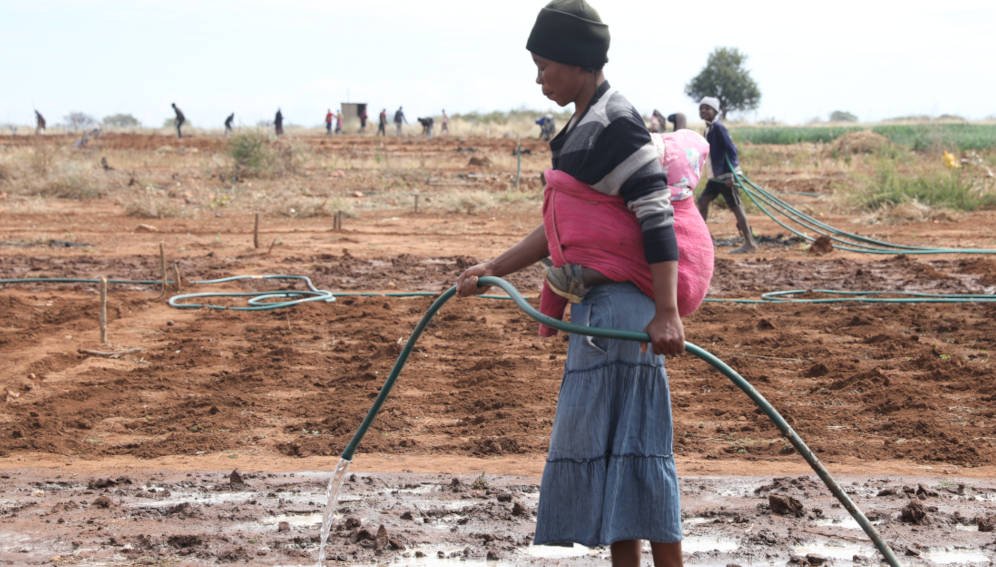by Tracey Chavango
Waiting for the rains…
We are almost reaching mid December, Zimbabweans anxiously await the rains.
While some rainfall has been received, the amounts are significantly lower than usual for this time of year. The fact that we’re not seeing the typical rainfall patterns is alarming. Comparing to other years, the deficit in rainfall is a clear indication of climate change.
Climate change is one of the most pressing issues of our time, and its effects are being felt across the globe. Rising temperatures, changing rainfall patterns, and increased frequency of extreme weather events are just a few of the many ways in which climate change is impacting our planet.
In Zimbabwe, the rainfall deficit is having a significant impact on the country’s agricultural sector. Farmers are struggling to plant their crops, and those who have already planted are facing the risk of crop failure due to the lack of sufficient rainfall. This not only affects the farmers’ livelihoods but also the country’s food security.
For many farmers, the unpredictable rainfall patterns are like playing a game of poker. They’re forced to take risks, planting their crops and hoping for the best. As one farmer put it, “It’s like rolling the dice, closing our eyes, and hoping to win. But the stakes are high, and the losses can be devastating.”
The rainfall deficit is also having a significant impact on the country’s water resources. Zimbabwe’s dams are already at critically low levels, and the lack of rainfall is exacerbating the situation. This is not only affecting the country’s agricultural sector but also the urban areas, where residents are facing water shortages.

In some parts of the country, excessive rainfall has caused destruction, including damage to homes and schools. Some tobacco farmers in places like Selous in Chegutu have decided not to risk planting this year, having suffered huge losses last year due to the unpredictable weather patterns.
To adapt to the challenges posed by climate change, Zimbabwe’s agricultural sector can focus on climate-resilient practices and technologies. According to Minister of Foreign Affairs and International Trade, Honourable Prof. Amon Murwira as the Acting Chairman for the Cabinet Committee on Environment, Disaster Prevention and Management, a Multi-Hazard Contingency Plan has been developed to prepare and adequately respond to a multiplicity of hazards that include tropical cyclones, riverine flooding, flash floods, landslides, heat waves, severe thunderstorms, hailstorms, fires, and human and animal epidemics, water borne diseases, crop pests, strong winds, mid-season dry spells, mine accidents as well as road traffic accidents.
“The nation is advised that riverine flooding may be prevalent in most flood prone areas during the January, February and March 2025 period due to anticipated high rainfall” , he said.
In addition to these strategies, the government of Zimbabwe has launched several initiatives aimed at addressing climate change. These include the National Climate Change Response Strategy, which outlines the country’s plan for reducing greenhouse gas emissions and adapting to the impacts of climate change
Furthermore, Zimbabwe’s National Climate Change Adaptation Plan (NAP), 2024-2030 paves the way for implementation of suitable adaptation measures, to reduce the country’s vulnerability to climate change, in line with the nation’s Nationally Determined Contributions (NDCs). Therefore, the 2025 National Budget has set aside ZiG516.8 million for the Ministry of Environment, Climate and Wildlife to implement the following:
• Hosting COP15 of the Ramsar Convention and SADC Trans-Frontier Conservation Summit;
• The Presidential Legacy Forests Project;
• Restoration of wetlands;
• Facilitate rehabilitation of degraded land in mining areas; and
• Upgrading of Zimparks infrastructure.
So, Who’s to Blame for Climate Change?
You know that feeling when you break your favorite dish, and you wish someone else had done it so you can lash out? That’s kind of what’s happening with climate change. Everyone wants to point fingers and blame someone else. But the truth is, we’ve all contributed to climate change in one way or another.
Whether it’s driving smokey cars, using plastic bags, we’ve all made choices that have impacted the environment. So, instead of pointing fingers, let’s take responsibility for our actions and work together to make a difference.
We can start by making small changes in our daily lives, like using public transport, recycling, or eating plant-based meals. We can also support organizations that are working to address climate change and demand action from our leaders.
The rainfall deficit in Zimbabwe is a clear indication of climate change. It’s up to us to take action to reduce our carbon footprint and mitigate the effects of climate change. We must demand action from our leaders and work together to create a sustainable future.

